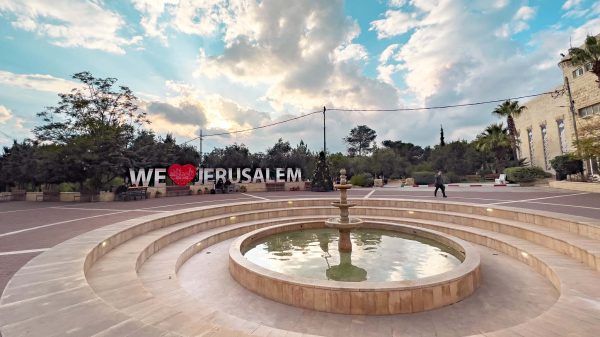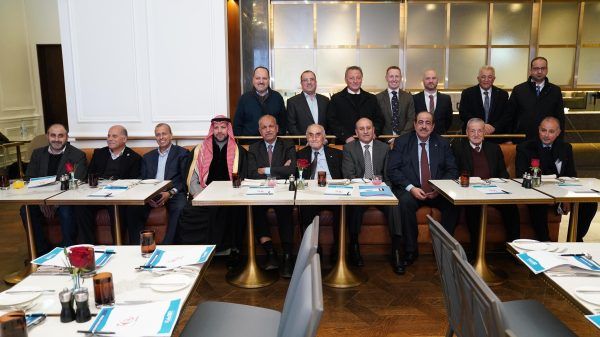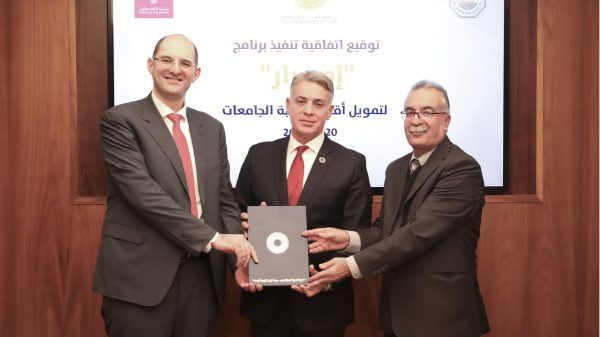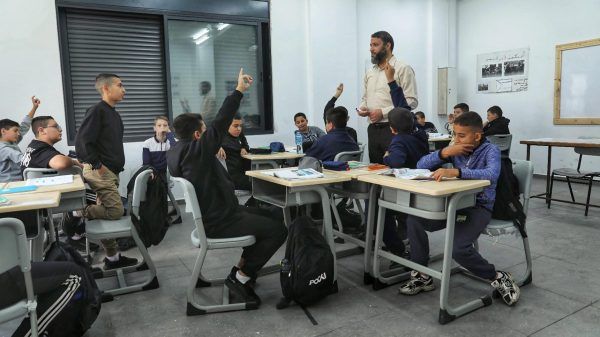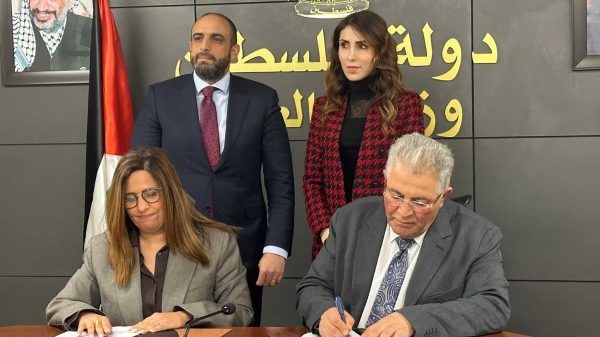 JERUSALEM | As the COVID-19 pandemic rages on, and as the global race to acquire the now highly coveted medical ventilators escalates, Al-Quds University’s President Professor Imad Abu Kishek announced that his university succeeded in producing a fully computerized ventilator capable of saving lives and providing a viable alternative to the shortage in Palestine and beyond in the standard commercial ventilators and other respiratory support machines.
JERUSALEM | As the COVID-19 pandemic rages on, and as the global race to acquire the now highly coveted medical ventilators escalates, Al-Quds University’s President Professor Imad Abu Kishek announced that his university succeeded in producing a fully computerized ventilator capable of saving lives and providing a viable alternative to the shortage in Palestine and beyond in the standard commercial ventilators and other respiratory support machines.
President Abu Kishek revealed that the prototype was designed by a team of senior professors from the university’s medicine and engineering faculties, who began work on developing the design when the COVID-19 outbreak reached Palestine more than a month ago. While several biomedical engineering companies have since made available their designs for ventilators to help manufacturers around the world meet the climbing demand for these machines, the actual production has proven difficult given the shortage in the hardware and other parts involved in the production of these sophisticated devices, compounded by a lack in the technical and other forms of expertise required to incept capable assembly lines. The challenge, and hence the qualitative addition in Al-Quds University’s design, was in building a ventilator from materials readily available in the local domain, all the while maintaining the safety requirements and achieving the medical functions that such devices are expected to deliver.
On Wednesday, and after much anticipation, the prototype successfully passed a series of rigorous preliminary medical, safety, and technical tests. The tests were designed and supervised by a team of experts in the pertinent fields, led by the Dean of the Faculty of Medicine and Professor of Pulmonary Diseases Dr Hani Abdeen, and the Dean of the Najjad Zeenni Faculty of Engineering Dr Ibrahim Afaneh, as well as external internists, intensivists, and biomedical engineers, who refereed the device’s performance and delivery of the desired respiratory functions.
The Cambridge University trained dean of the Faculty of Medicine, Dr Abdeen, who also served as a minister of health in previous Palestinian governments, emphasized that some of the accessories that come with the mass-produced ventilators are compensated by three key features exclusive to Al-Quds University’s prototype: low-cost, potential for quick production, and the ability to deploy the machines in ERs, ICUs, and field treatment centers. These features are vital in providing a swift response to the consequences of the pandemic, which continues to devastate major healthcare systems and overwhelm ICUs, leading to increased fatalities due to a shortage in respiratory machines needed by coronavirus patients. According to an influential study by Imperial College London, some 30% of coronavirus patients are likely to develop pneumonias and other pulmonary complications, requiring support from respiratory machines or otherwise facing the risk of death. According to the Palestinian Ministry of Health, Palestine has less than 250 medical ventilators in all of its hospitals, of which more than two thirds are already occupied by patients of other illnesses. Efforts to procure more machines are underway, but the global shortage, export restrictions by producing countries, and the modest economic means have rendered these efforts ever more daunting. Against this backdrop, Al-Quds University’s ventilator would probably be the most important and timely invention Palestine is yet to witness.
Following the successful completion of the tests on the prototype, His Excellency Palestinian President Mahmoud Abbas called Professor Abu Kishek to thank him for this scientific and humanitarian contribution, and to congratulate the University’s community on this remarkable achievement. On his part, Professor Abu Kishek conveyed to President Abbas the University’s decision to put all IP and other rights associated with the prototype under the President’s direction, as a contribution from the only Arab university in Jerusalem to the efforts that the President leads in confronting the pandemic in Palestine, and through him, to the global battle against this threat.
The ventilator would be ready for production and deployment once the Palestinian Standards Institute (PSI) approves the prototype. The PSI, which is the Palestinian equivalent of the American FDA, began an expedited review process, and a team of eight experts from the institute examined the device on Saturday. The Director of PSI Haidar Hijjeh, who personally attended the examinations, issued a report confirming his institute’s preliminary approval of the prototype. A final approval is pending further tests that are expected to be completed within this week.
Al-Quds University is a research-intensive university that is dedicated to excellence in teaching. Al-Quds offers more than one hundred under and post-graduate programs, taught through its fifteen degree-granting faculties, which cover the major disciplines in medicine, engineering, life and natural sciences, law, and humanities. Al-Quds, currently home to more than thirteen thousand students, was established in 1977, and has since pioneered in introducing programs for the first time in Palestine, including the establishment of the first Palestinian medical school.
*For further inquiries, please write to pr@alquds.edu



